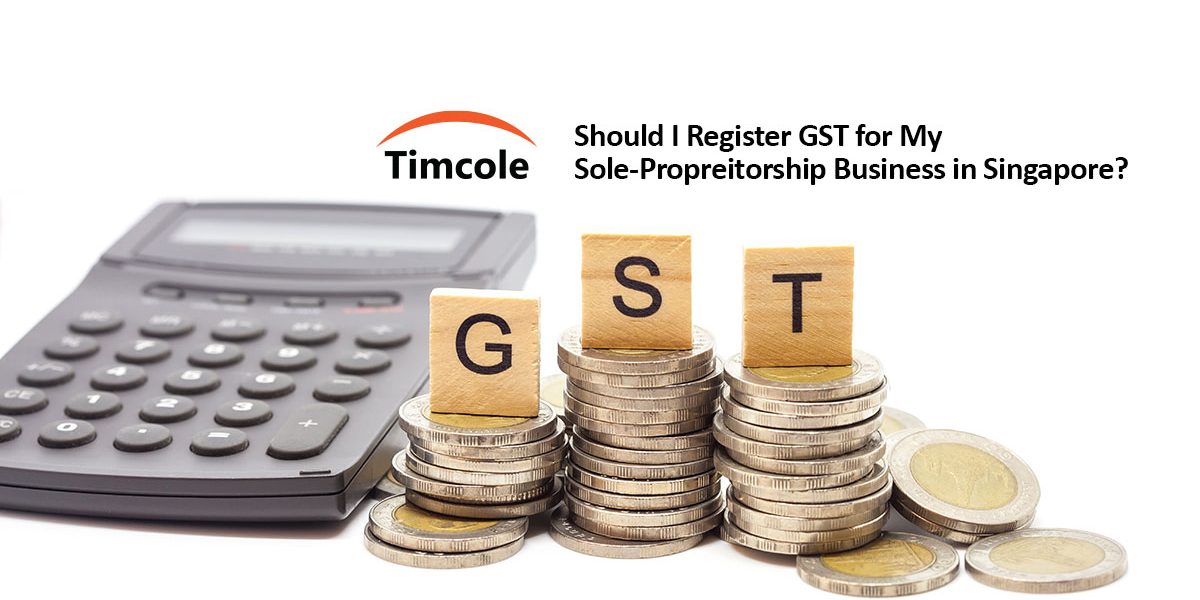Every business needs to consider some practical issues regarding Goods and Services Tax (GST) and IRAS filing compliance.
As a business owner, one of the most important steps you should take is to determine whether your business qualifies for GST registration. If your taxable supplies for the previous accounting year is greater than S$1 million or if your taxable supplies for the next accounting year are expected to be greater than S$1 million, then it is mandatory for you to register your business for GST. If you fail to comply with the GST registration, the Inland Revenue Authority of Singapore (IRAS) can fine you heavily.
For company GST concern, refer to ‘Should I Register GST for My Company in Singapore?‘
Failure to Aggregate Income of All Sole Proprietor Businesses
A lot of sole proprietors have the erroneous belief that the sole proprietor businesses that they have registered under various trading names all stand as separate legal entities. Therefore, they fail to aggregate the taxable turnover that those businesses yield while determining their GST registration liability.
According to the law, all businesses owned by the same proprietor are regarded as one entity. This implies that a sole proprietor must register for GST as soon as the taxable turnover from all his businesses add up to an amount greater than S$1 million in a year.
Voluntary Registration
Even if taxable income for your business hasn’t exceeded S$1 million, you can still register your business for GST voluntarily. Here are the conditions that your business should satisfy before you can register voluntarily:
- Your business must be making taxable supplies.
- Your business must be making only out-of-scope supplies; or
- Your business is making exempt supplies of financial services that are equally international services.
You may also register voluntarily if you are not making supplies yet, but you intend to make the supplies that we mentioned above.
GST Registration
Kindly note that GST registration is always in the sole proprietor’s name. If you register for GST, every sole proprietorship businesses registered under your name will automatically become GST-registered. Even the sole proprietor businesses you register in the future will become GST-registered also.
It’s better not to register for GST under any sole-proprietor business. The reason why we don’t recommend the registration is that the personal name that is being used for the registration can easily generate GST complications later in the future.
We recommend the registration for GST under a company setup because the GST risks associated with this type of registration is manageable since you can separate personal matters from business matters. Learn the different types of business structures here.
Also, the 17% corporate tax rate is more attractive than the 22% personal tax rate. You may even lower your effective tax with corporate tax exemptions as a company, but not as a sole proprietor. Learn how to save money on personal taxes in Singapore here.
 Singapore offers many tax benefits for private limited companies. Read more on:
Singapore offers many tax benefits for private limited companies. Read more on:
- Overview of Singapore Taxation
- Taxation of International Executives in Singapore
- Industry Specific Tax Incentives in Singapore
If you are already expecting your business turnover to reach S$1 million soon or you are planning to register for GST voluntarily, then you should start to plan how you can set up a company. After you have set up a company, you can proceed with the GST registration.
Contact us today if you need our assistance. Timcole will be glad to help you.








